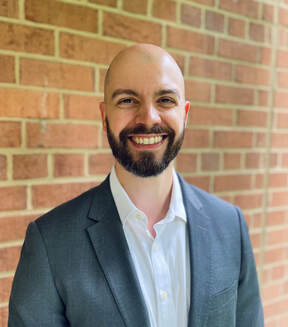I'm an associate professor of environmental history at Georgetown University.
My work bridges the humanities and sciences to explore how communities have responded to abrupt changes in environments on Earth and across the Solar System. I aim to better understand how environmental forces have shaped human history - partly to offer fresh perspectives on the gravest threats and greatest opportunities of the twenty-first century.
My work bridges the humanities and sciences to explore how communities have responded to abrupt changes in environments on Earth and across the Solar System. I aim to better understand how environmental forces have shaped human history - partly to offer fresh perspectives on the gravest threats and greatest opportunities of the twenty-first century.
Most of my scholarship identifies past changes in climate and considers how they influenced human history. For example my first book, The Frigid Golden Age: Climate Change, the Little Ice Age, and the Dutch Republic, 1560-1720 (Cambridge University Press, 2018) explores how the Dutch Republic - precursor of the present-day Netherlands - endured the Little Ice Age, a period of natural climatic cooling. The book reveals that while climatic cooling worsened disasters the Dutch struggled to overcome, it also offered opportunities that the Dutch aggressively exploited. The Frigid Golden Age was named by the Financial Times as one of the ten best history books of 2018.
I also publish widely in both historical and scientific journals, including Nature, Environmental Research Letters, and The American Historical Review. In many of these publications, I uncover how populations found ways to cope with climate change, rather than succumb - an approach termed "potentially revolutionary" by The Lancet. I have also worked to develop new methods for connecting human and climatic histories; to uncover new relationships between climate change and conflict; and to incorporate the histories of animals within the human history of climate change.
I also publish widely in both historical and scientific journals, including Nature, Environmental Research Letters, and The American Historical Review. In many of these publications, I uncover how populations found ways to cope with climate change, rather than succumb - an approach termed "potentially revolutionary" by The Lancet. I have also worked to develop new methods for connecting human and climatic histories; to uncover new relationships between climate change and conflict; and to incorporate the histories of animals within the human history of climate change.

A second area of focus for me is the environmental history of outer space. For example my second book, Ripples in the Cosmic Ocean: An Environmental History of Humanity's Place in the Solar System (Harvard University Press/Viking), argues that dynamic environments across the Solar System have profoundly influenced the human history of the past five centuries.
While working on these and other projects, I teach courses at Georgetown on topics that include the Little Ice Age, the impacts of global warming, the environmental history of outer space, and the Anthropocene. I regularly plan major events at Georgetown that explore different dimensions of the climate crisis, or outer space exploration, exploitation, and settlement.
I also aim to bring the lessons of the past to policymakers and the general public. I regularly give public lectures, and my writing has appeared in Aeon, The Conversation, and the Washington Post, among other outlets. I have been interviewed for articles that appeared in, for example, Axios, CNN, the Los Angeles Times, Popular Science, Space.com, and the Washington Post. News media in five continents have announced findings from my scholarship, occasionally in major feature articles.
I also care deeply about creating independent platforms for scholars in my fields. I am the founder and co-director of HistoricalClimatology.com, a popular website that explains what the past can tell us about present-day climate change, and the co-founder and co-director of the Climate History Network, an organization of over 200 academics in many disciplines. I founded and co-host the podcast Climate History, and established Climate Tipping Points, a student-driven project that aims to introduce a broad audience to the local consequences of climate change.
While working on these and other projects, I teach courses at Georgetown on topics that include the Little Ice Age, the impacts of global warming, the environmental history of outer space, and the Anthropocene. I regularly plan major events at Georgetown that explore different dimensions of the climate crisis, or outer space exploration, exploitation, and settlement.
I also aim to bring the lessons of the past to policymakers and the general public. I regularly give public lectures, and my writing has appeared in Aeon, The Conversation, and the Washington Post, among other outlets. I have been interviewed for articles that appeared in, for example, Axios, CNN, the Los Angeles Times, Popular Science, Space.com, and the Washington Post. News media in five continents have announced findings from my scholarship, occasionally in major feature articles.
I also care deeply about creating independent platforms for scholars in my fields. I am the founder and co-director of HistoricalClimatology.com, a popular website that explains what the past can tell us about present-day climate change, and the co-founder and co-director of the Climate History Network, an organization of over 200 academics in many disciplines. I founded and co-host the podcast Climate History, and established Climate Tipping Points, a student-driven project that aims to introduce a broad audience to the local consequences of climate change.